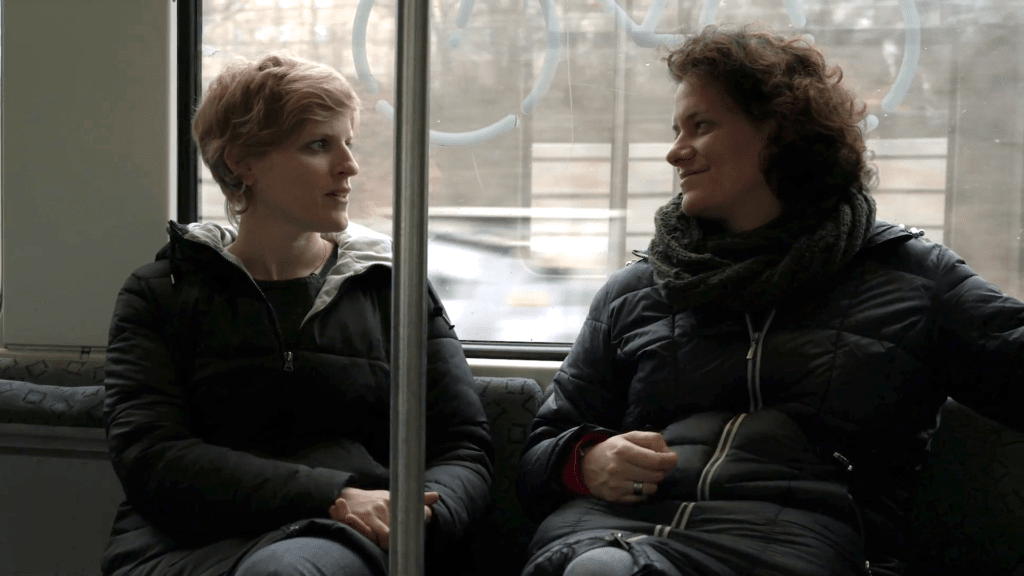
Purely as a concept, Back to the Fatherland sounds like an essential documentary. Co-directed by the granddaughter of a Jew who escaped the Holocaust and the granddaughter of a man who abandoned his family to become a Nazi, it explores the way that history still affects both the generation who experienced the Holocaust and that generation’s grandchildren. It’s a massive undertaking for a film 77 minutes long, but directors Gil Levanon and Kat Rohrer manage to do it with nuance, emotion and intelligence.
Though the film begins with Levanon telling her grandfather–who fled as a child during the war and still swears never to return–that she’s thinking of moving to Germany, the directors mostly explore their subject through other families with similar histories. There’s Dan Peled, an Israeli ex-pat artist living in Germany, the country his grandmother Lea Ron Peled fled as a teenager. There’s Guy Shahar, an Israeli ex-pat living and married in Austria this, whose grandfather, Uri Ben Rehav, fled the country as a young man. In every case, the older generation is adamant: they will never return to the country where they were born.
Obviously, for the younger set, the issue isn’t so clear-cut. In scene after scene, Levanon, Rohrer and friends discuss the current state of Israel and the way the memories of the Holocaust have affected Jews on both a personal and national level. As one woman explains through tears, the way she sees it, the “victim narrative” created by the Holocaust has not only kept Israel from healing, but allowed the nation to justify their own acts of violence. It’s a striking statement only made more effective by a scene where we watch Israelis on packed highways standing outside of their cars to listen to the city-wide siren marking Holocaust Remembrance Day.
Still, compelling as those scenes and arguments are, Levanon and Rohrer use the older generation to complicate that perspective, resulting in a more thought-provoking and emotionally rich viewing experience. Despite their protests, both Lea and Guy are convinced to visit the cities of their birth. While a scene where Lea recites a poem on an empty stage feels a bit heavy-handed, a scene where Guy and Uri ride a city transport train is one of the film’s best. As they ride the train, Guy suddenly remembers when he was arrested by a Nazi simply for wearing a jacket that happened to include the colors red, black and white. As Guy struggles to hide his emotion from the camera, Uri–so quick to dismiss his grandfather’s concerns before–explains that though he heard that exact story every week as a child, it takes on new meaning hearing it on the very trains where it took place. And yet, despite all that, Guy seems genuinely happy to have returned to his “fatherland” and Uri can’t help but notice that his grandfather feels more comfortable in Austria than he does.
As Back to the Fatherland goes on, the question becomes not how can Israel and the younger generations of Jews move on from the trauma of the Holocaust, but is moving on even possible? It is a collective trauma not even a century old and as Back to Fatherland suggests, a wound both personal and national in scale. Perhaps contending with a grief of that magnitude needs more time. For now, as the final shot of Gil and Kat standing in a dusty attic staring at the latter’s grandfather’s Nazi uniform suggests, perhaps the only form that memory can take is a family secret, never fully understood but impossible to forget.

